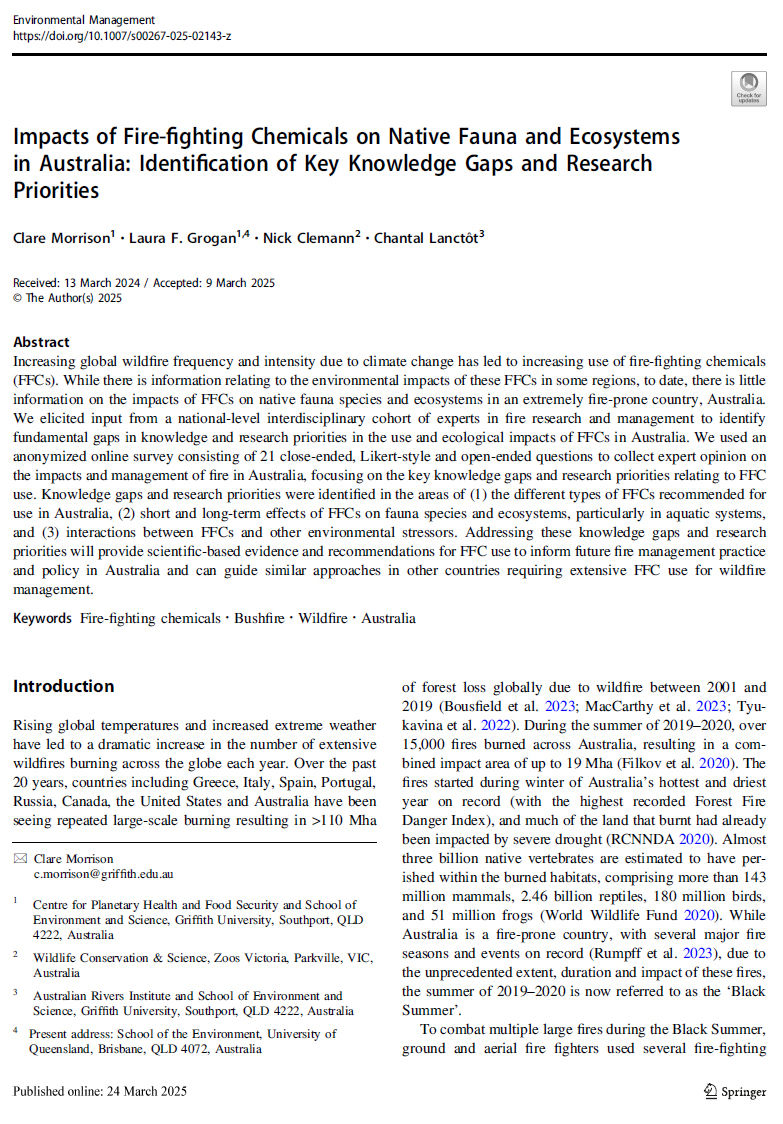New paper exploring potential impacts of fire-fighting chemicals on native fauna!
- Apr 10, 2025
- 2 min read
In the wake of the Black Summer bushfires we conducted a survey of industry experts to identify knowledge gaps and research priorities on the ecological impacts of the use of fire-fighting chemicals in Australia. You can find the abstract below as well as a link to the paper.
Morrison, C., Grogan, L.F., Clemann, N. et al. Impacts of Fire-fighting Chemicals on Native Fauna and Ecosystems in Australia: Identification of Key Knowledge Gaps and Research Priorities. Environmental Management (2025). https://doi.org/10.1007/s00267-025-02143-z
Abstract
Increasing global wildfire frequency and intensity due to climate change has led to increasing use of fire-fighting chemicals (FFCs). While there is information relating to the environmental impacts of these FFCs in some regions, to date, there is little information on the impacts of FFCs on native fauna species and ecosystems in an extremely fire-prone country, Australia. We elicited input from a national-level interdisciplinary cohort of experts in fire research and management to identify fundamental gaps in knowledge and research priorities in the use and ecological impacts of FFCs in Australia. We used an anonymized online survey consisting of 21 close-ended, Likert-style and open-ended questions to collect expert opinion on the impacts and management of fire in Australia, focusing on the key knowledge gaps and research priorities relating to FFC use. Knowledge gaps and research priorities were identified in the areas of (1) the different types of FFCs recommended for use in Australia, (2) short and long-term effects of FFCs on fauna species and ecosystems, particularly in aquatic systems, and (3) interactions between FFCs and other environmental stressors. Addressing these knowledge gaps and research priorities will provide scientific-based evidence and recommendations for FFC use to inform future fire management practice and policy in Australia and can guide similar approaches in other countries requiring extensive FFC use for wildfire management.





Comments